The Security Industry Authority (SIA) is the regulatory body for the private security industry in the United Kingdom. SIA licensing is a process through which individuals working in certain sectors of the security industry must obtain a license to practice legally. The licensing systems aims to ensure that individuals providing private security services meet specific standards and are fit to carry out their roles. The Security Industry Authority licensing plays a crucial role in maintaining professionalism and accountability within the private security industry. It helps ensure that individuals providing security services have the necessary qualifications, training and background to contribute to public safety and security.
Key Points to Know About SIA Licenses
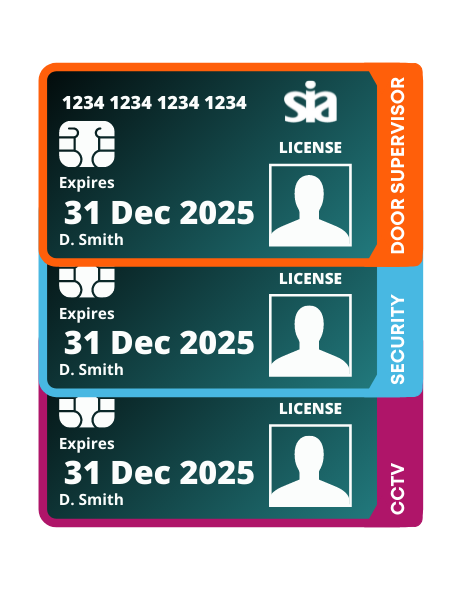
Key points about The Security Industry Authority Licensing include the following.
- Mandatory Licensing: SIA licensing is mandatory for individuals working in designated security sectors, including but not limited to security guarding, door supervision, CCTV operation, close protection, and key holding.
- Eligibility Criteria: To obtain a Security Industry Authority License, individuals must meet specific eligibility criteria, including age, identity verification and proof of right to work in UK.
- Training Requirements: Applicants are required to complete approved training courses relevant to their specific role. This training ensures that license holders have the necessary skills and knowledge to perform their duties competently and ethically.
- Criminal Record Checks: The Security Industry Authority conducts criminal record checks as part of the licensing process to assess the suitability of individuals to work in the security industry.
- Renewal and Fees: SIA licenses are typically valid for three years, after which individuals must renew their licenses. There are fees associated with both the initial application and the renewal process.
- Sectors covered: SIA licensing covers a range of security roles, such as security guarding, door supervision at licensed premises, operating CCTV, providing close protection services and holding and transporting keys.
- Private Security Companies: In addition to individual licensing, private security companies operating in the UK must meet specific standards and may also be regulated by the SIA.
Also Read: Top 6 Security Training Providers in the UK
Importance of Security Industry Authority Licensing
Below are several reasons why Security Industry Authority licensing is essential.
- Professionalism and Competency: SIA licensing makes sure that individuals working in the security industry have undergone approved training, demonstrating their competence and professionalism in carrying out their assigned roles.
- Standardization: By setting common standards for training and conduct, SIA licensing contributes to a standardized and consistent level of professionalism across the private security industry.
- Public Safety: SIA licensed individuals are better equipped to handle security responsibilities which contribute to enhanced public safety in various sectors including retail, events and critical infrastructure.
- Legal Compliance: Operating without the Security Industry Authority license in designated security roles is illegal. Holding a valid license means that individuals will comply with legal requirements thus avoiding legal consequences for not only themselves but their employers as well.
- Criminal Record Checks: The licensing process includes criminal record checks, helping to screen out individuals with criminal histories that may pose a risk to the safety and security of clients and the general public.
- Specialized Training: The Security Industry Authority licensing requires individuals to undergo specific training relevant to their roles making them well prepared to handle challenges and emergencies in their designated areas such as door supervision or close protection.
- Public Trust: SIA licensing enhances public trust in the private security industry. The visible display of an SIA license provides the necessary reassurance to clients and the public that the security personnel they encounter have met professional standards.
- Accountability: SIA licensing establishes accountability in the industry. Licensed individuals and subject to the SIA’s Code of Conduct and any breaches can result in disciplinary action, including license revocation.
- Reduced Risk of Misconduct: The licensing system helps reduce the risk of misconduct by providing a framework for ethical behavior and standards of practice within the security industry.
- Industry Reputation: Upholding the standards set by the Security Industry Authority contribute to the positive reputation of the private security industry. This as a result attracts more qualified professionals and clients seeking reliable security services.
Also Read: What is the difference between security guard and door supervisor?
How to get a Security Industry Authority License?
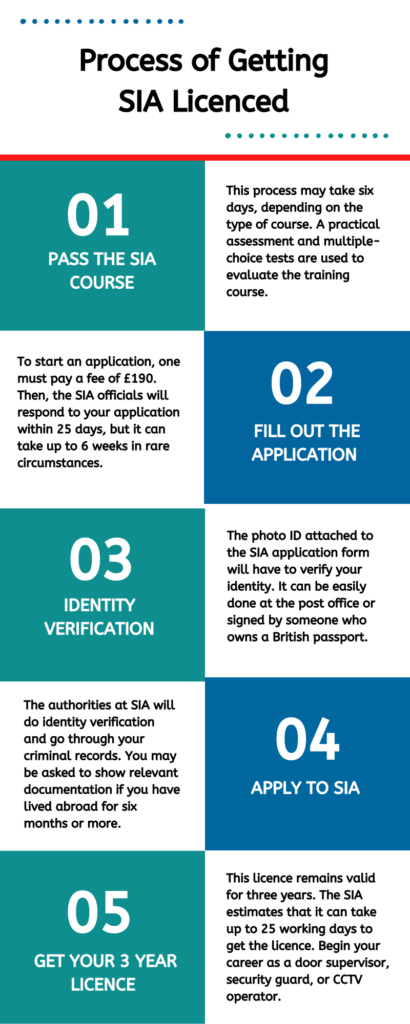
Applying for a Security Industry Authority (SIA) license in the United Kingdom involves several steps. A general guideline of the steps involved in getting an SIA license is as follows.
- Determine Eligibility: Making sure you meet the eligibility criteria including age, identity verification and proof of the right to work in the UK is the first step for applying for an SIA license.
- Choose the Right License: Identify the specific SIA license that corresponds to the security role you intend to perform for e.g. security guarding, door supervision, CCTV operation, close protection.
- Complete Approved Training: Enrollment and successful completion of an SIA approved training course for the relevant license category. Training providers offer courses covering the necessary skills and knowledge for each security role.
- Apply for the License: Obtain an application form from the SIA website or request it by phone. It is mandatory to complete the application form with accurate, authentic and truthful information.
- Submit Application: Send the completed application form along with any required documentation and the appropriate fee, to the SIA. Applications can be submitted online or by mail.
- Criminal Record Check: The Security Industry Authority will conduct a criminal record check as part of the application process. You have to be sure of that fact that your criminal record aligns with SIA’s eligibility criteria.
- Wait for Processing: Allow time for the SIA to process your application. Processing times may vary, but the SIA aims to complete the process efficiently.
- Receive Decision: You will receive a decision on your application. If approved you will be issues an SIA license. If there are issues with your application, you may receive guidance on how to address them.
- Renewal: SIA licenses are typically valid for three years. Ensure you renew your license before it expires to continue working legally in the security industry. The renewal process involves retraining and submitting a renewal application.
- Maintain Compliance: Comply with SIA regulations including adhering to the Code of Conduct. Any changed in your personal details or circumstances must be reported immediately.
Also Read: Top 6 Platforms to Find Security Jobs in the UK
Types of Security Industry Authority Licenses
The Security Industry Authority (SIA) offers different types of licenses based on specific security roles which are explained below.
1. Security Guarding License:
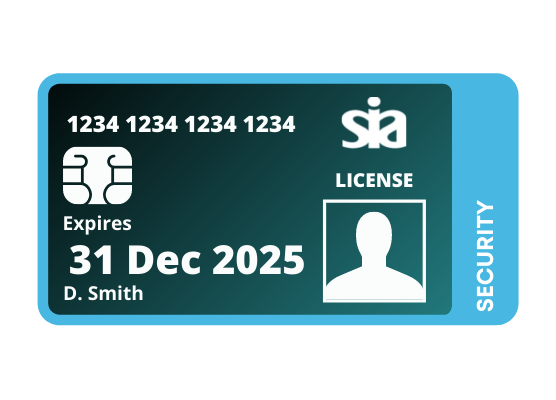
The security guard license is for individuals working in roles that involve general security duties, such as patrolling, monitoring and controlling access. You can obtain this licence after completing a security guard training course.
2. Door Supervisor License:
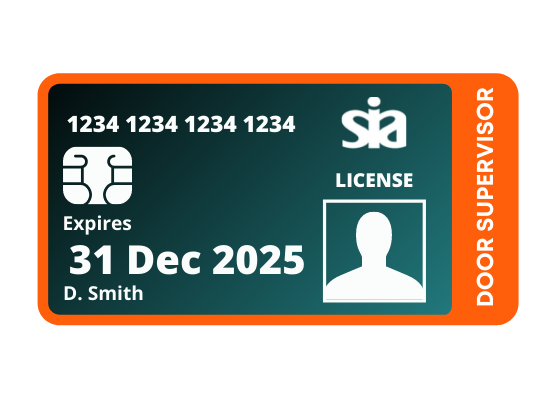
Required for individuals involved in door supervision, typically at licensed premises. The door supervisor license covers roles that involve checking of IDs, managing crowds and ensuring safety. You can start working as one by completing a door supervisor training course.
3. CCTV Operator License:
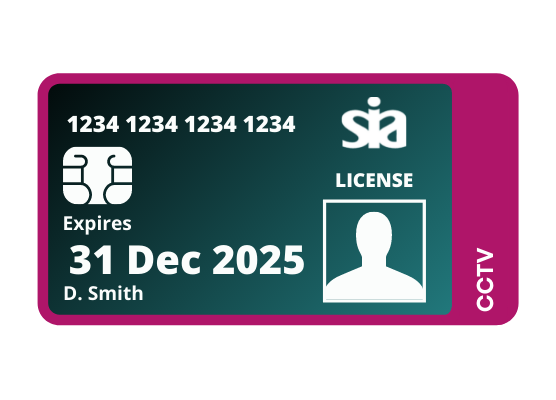
CCTV operator license is necessary for individuals operating surveillance equipment, monitoring CCTV systems and ensuring the security of premises through video surveillance. You can get a job in CCTV security after completing a CCTV operator training course.
4. Close Protection License:
For individuals providing close protection services to individuals or groups. This includes security personnel responsible for the safety of VIPs.
5. Public Space Surveillance License:
Similar to the CCTV Operator License the PSS license is for individuals involved in monitoring public spaces for safety and security.
6. Key Holding License:
Required for individuals responsible for holding and responding to alarms at premises. This may include responding to break-ins, conducting security checks and liaising with emergency services.
7. Vehicle Immobilizer License:
For individuals involved in immobilizing vehicles. This license is relevant in specific situations such as enforcing parking regulations.
Knowing the What? Why? and How? Of the Security Industry Authority licensing should be the first priority when choosing a security training course as a beginner We here at Agile Security Training offer the best security training courses and also have trained hundreds of SIA professionals for the UK’s private security industry.

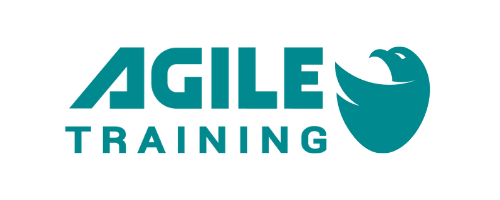
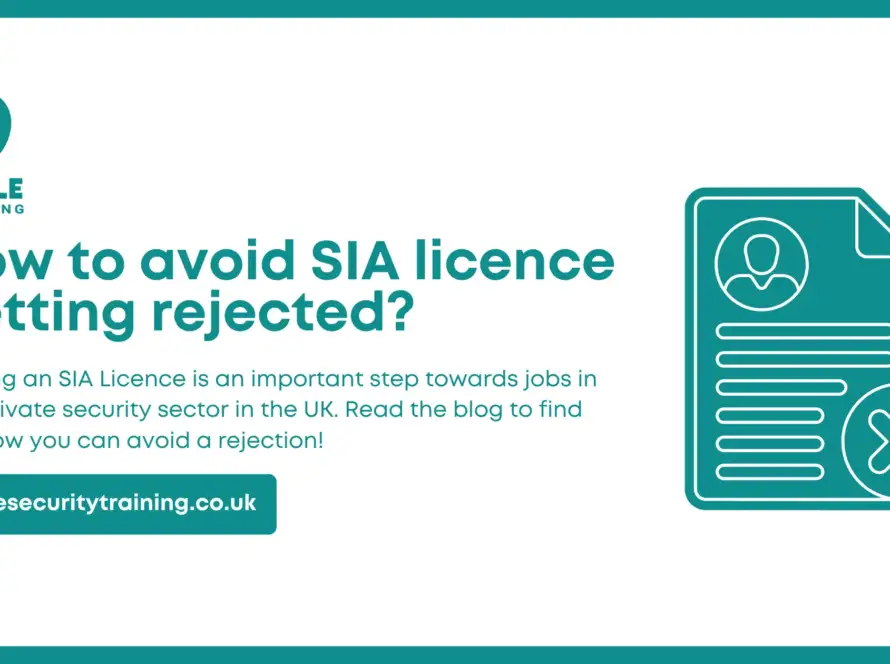
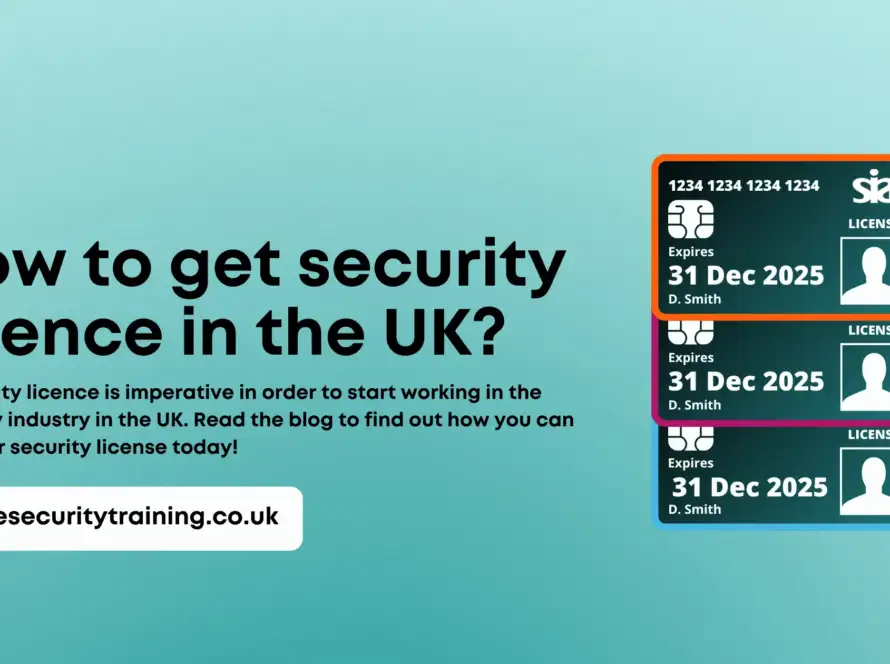
2 Comments
Cheryle
Hey there! I just wanted to ask if you eever have any issues with hackers?
My last blog (wordpress) was hackd and I ended up losing a few months
of hard work ddue to no back up. Do you have any solutions
to protectt against hackers? https://Www.Waste-ndc.pro/community/profile/tressa79906983/